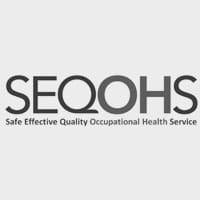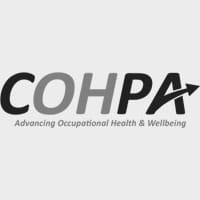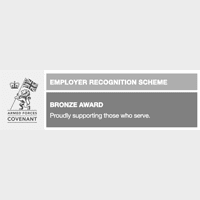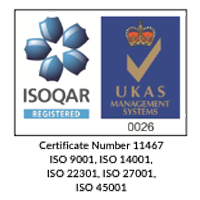What is occupational health?
Occupational Health is a highly specialised but broad area of medicine that focuses on the inter-relationship between work and health and how each affects the other in either a positive, neutral or negative way.
Occupational Health providers provide advice and guidance to employers to help them:
- reduce risks to the health and safety of their workforce
- effectively support employees who have a health condition or disability
- promote better physical and mental health and wellbeing among their staff.
The first recorded reference to any form of occupational health practice dates back to the classical period when the ancient Greek physician Hippocrates (otherwise known as ‘The Father of Medicine’) noted his observations on the effects of lead poisoning in miners.
Flash forward to today and our expert practitioners can be found operating across all industries to support and maintain the health and wellbeing of workers in every occupation, from keeping sewage workers safe in our wastewater systems to helping food producers maintain hygiene and productivity, to advising office workers on how they can manage the physical and mental health risks associated with high-pressure work and a sedentary lifestyle.
Essentially, we assist anyone who employs people to keep them in work, safe and well.
What does Occupational Health actually do?
We spoke to Medigold Health Sales Director, Tom Butcher, to get the lowdown on all the different services that Occupational Health encompasses, from sickness absence referrals to employee health and pre-placement screening, to physiotherapy and counselling. Read on to find out more.
Sickness Absence Referrals and Occupational Health Reports
(Also known as Management Referrals, Occupational Health Assessments)
If an employee falls ill and their illness begins to impact on their performance and/or attendance at work, Occupational Health can help you to objectively review the situation. We act as an independent arbiter, listening to both the employer’s and the employee’s perspectives and conducting a focused assessment, usually via a telephone, video or face-to-face consultation.
In every case, our clinicians use their sympathetic ear, clinical instinct and expert knowledge of disease, occupational hazards, safety critical requirements and the commercial realities of operating a business to help find an effective solution.
They may recommend making reasonable workplace adjustments. For example:
- making changes to working patterns or providing additional support
- arranging a course of treatment (counselling or physiotherapy)
- managerial activity (an appraisal or mediation)
- referring the employee for further specialist medical assessment if they suspect a more serious underlying medical condition than the one presented. Basically, we are here to distinguish the medical facts from any other influencing factors at play and to help find a way to enable your employee, wherever possible, to return to and continue making a valuable contribution to the workplace.
Employee Health Screening
(Also known as Health Surveillance , Health Monitoring, Health Assessments, Fit for Work Medicals)
There are hundreds of safety critical professions, particularly within the transport, construction and manufacturing industries, where it is in the interests of the safety of the individual, their colleagues and the public to ensure, through regular health checks, that employees are medically fit to be performing their role. UK law, in particular the Health & Safety at Work Act 1974 (2011), along with many other statutory industry standards and best practice directives, helps to shape how we operate in terms of conducting employee health screening. We collaborate closely with the health and safety representatives of each employer we work with to ensure that we are conducting the correct medicals for their industry, taking into account any unique risks or hazards to which their workforce is exposed.
Some examples of the common (and not so common!) employee medicals we deliver include:
- Safety-critical construction worker medical
- Working at heights medical
- Working in confined spaces medical
- D4 HGV/PCV driver medical
- Offshore worker medical
- Train driver medical
- Class 1 commercial pilot medical
- Diver medical
- Antarctic exploration pre-deployment medical
A closely related service, often referred to as ‘health surveillance’ or ‘health monitoring’, is the practice of periodically conducting specific checks to assess the impact of an employee’s work activities on their health over time and whether adjustments or more effective protective measures are needed. The type and frequency of testing required will be determined by the occupational hazards of the employee’s primary role. For example, a construction worker exposed to high noise levels all day should have audiometric testing approximately every two years to check for noise-induced hearing loss, whereas a site surveyor who attends the same site less regularly would likely not require the same testing as their risk of noise exposure is lower. This is a vital consultancy service that occupational health provides to employers to keep their employees safe and their businesses compliant with UK legislation, and to protect them from the risk of civil litigation (as a result of Employers Liability claims).
Examples of the health surveillance we conduct include:
- Audiometric (hearing) testing
- Dermatological (skin) checks
- Respiratory (lung function) testing
- HAVS (Hand Arm Vibration Syndrome) testing
- Statutory medical surveillance and biological monitoring (for employees who work with asbestos, lead, ionising radiation and other hazardous substances)
Pre-Placement Screening
(Also known as New Starter Screening or Pre-Employment Screening)
An often underrated service, pre-placement screening offers a quick, efficient means of ensuring that newly recruited employees are medically fit to fulfil the duties and responsibilities of the role they have been offered and that the work they will be doing will not have an adverse effect on their health.
The screening process, which involves the candidate completing an online health questionnaire that is then reviewed by an Occupational Health clinician, is designed to facilitate open conversations between employees and their new employer to ensure that any disabilities, pre-existing or historic health conditions/issues or other health risks are taken into consideration and that any required adjustments or support are in place from the outset. It is also a great tool for helping to prevent future sickness absence as it ensures management are aware of often otherwise unnoticeable health conditions e.g., diabetes, eczema, arthritis, arrhythmia, which can change unexpectedly and result in absence issues. This means they can better support employees to manage their conditions proactively and avoid the likelihood of problems developing
Alongside our pre-placement questionnaires, we also provide a number of other types of screening questionnaires, all digital and all designed to support this type of medical self-declaration. Typical examples include:
- Night worker questionnaires
- Cold-temperature worker questionnaires
- Food Handler questionnaires
- Company driver questionnaires

Physiotherapy, Counselling and Employee Wellbeing
Because we see all the health issues that exist in a workplace, we are ideally placed to design health and wellbeing programmes that will deliver the highest impact by effectively addressing the key organisational health risks, with a focus on promoting better health and physical/mental performance and ensuring that employees can quickly access private therapies where required.
While we always tailor our wellbeing programmes to the needs of the specific organisation, they will generally tend to incorporate a range of core services/tools that are closely related to the most common health complaints we observe among our clients’ employees, including:
- Physiotherapy services (online, telephone, video-call and face-to-face)
- Counselling services (online, telephone, video-call and face-to-face)
- Mental health and performance training and coaching sessions
- Smartphone apps to help employees learn about and improve their own mental health
- Health and lifestyle checks with 1:1 coaching
- Annual wellbeing calendars with a range of monthly topics and HR toolkits

Vaccinations, needlestick advice and support and flu jabs
Employers whose employees work in roles where they may be exposed to vaccine-preventable communicable or infectious diseases have a duty of care to ensure that they are fully immunised, to safeguard both them and any vulnerable groups they work with against any associated risks to their health.
Our comprehensive occupational health immunisation and travel vaccination services ensure that your employees are fully protected so they can stay safe and well at work, wherever they are. We can also assist with:
- reviewing your immunisation policy to make sure it is fit for purpose
- providing advice and post-exposure management and support should an employee suffer potential direct exposure to certain viruses in the course of their work (for example, as the result of a needlestick injury)
- providing annual flu clinics and flu vouchers to protect your workforce from the risk of seasonal flu.
So, in answer to what we actually do… well, a lot!
If you want to introduce any of the above services or learn more about how they can benefit your organisation, simply get in touch with our friendly team via salesenquiries@medigold-health.com.
Run a business with 250 employees or fewer? Check out our Medigold Health Protect package, which we designed exclusively for SMEs to give you affordable access to quality occupational health advice and all the support you need to boost the wellbeing of your people. For more information, email us at protect@medigold-health.com
The Latest from our Blog…
Check out our blog for all of the latest news, events and updates from Medigold Health.
-

How to support schizophrenia in the workplace
By guest blogger, Dr Judith Bird, qualified Clinical Health Psychologist specialising in assessing, diagnosing and treating complex mental health issues and Head of Mental Health at Medigold Health. It is estimated that 1 in 100 will experience an episode of schizophrenia at some point in their lives. Yet despite this,[...]
Read More -

Highlights from our Health Surveillance Conference Roadshow
We’re thrilled to share the highlights of our recent Health Surveillance Conference Roadshow, which took place in Milton Keynes and Sheffield. These events were fantastic opportunities for Medigold Health to update our technicians on the latest industry guidance, while also providing the perfect opportunity for some socialising with colleagues! What[...]
Read More -

Celebrating Pride Month: Voices of support from our colleagues
June is here, and with it comes the vibrant celebration of Pride Month! At Medigold Health, inclusivity is central to our culture. We know that we depend on diversity and ‘Recognition & Respect’ is one of our core values. We believe in fostering a workplace where everyone feels valued, respected,[...]
Read More














